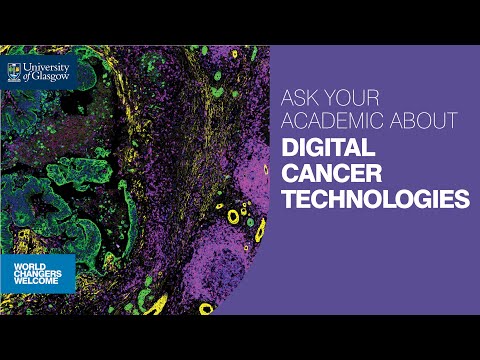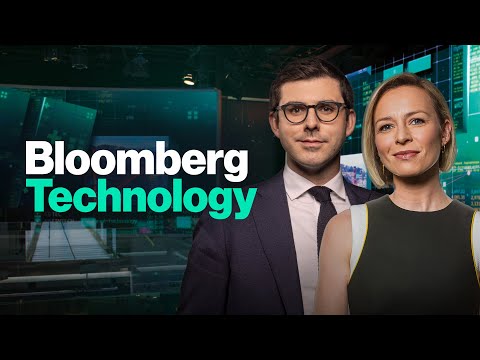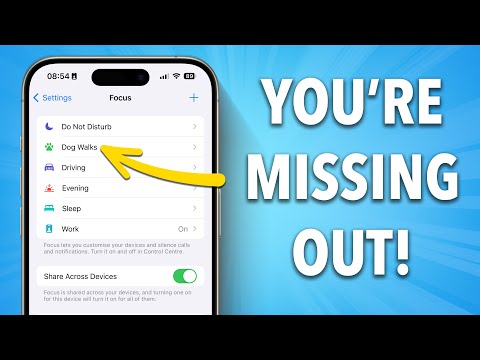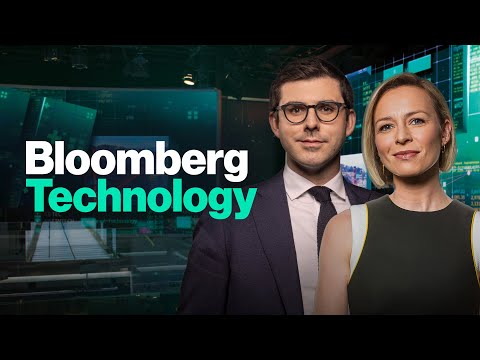Ask yor Academic about MSC Digital Cancer Technologies at UofG (May 2023)

and welcome to ask your academic today's session will cover the MSC in digital cancer Technologies and we're joined by some of our academics that are working on that program so um we'll ask some questions to them and you can use the chat box to ask any other questions you have if you've got any questions specific to your application and I'll pop some useful links into the chat box for those if after the session you have any further questions you can contact the program Administration team and they'll get back to you we're also recording this session so that will be made available to you after today and so we only have a short time so if it's all right we'll enter get our panel to introduce themselves and maybe tell us a bit about how they're involved in the program and give a brief overview of the program do you want to go first hello everyone so my name is Professor Joanne Edwards and I'm professor of translational cancer pathology here in the University of Glasgow and I have quite a large research team that investigates the role of biomarkers and solid tumors and we use a variety of different Technologies such as chromogenic ixc Multiplex and universities and um and all make Technologies such as genomics and transcriptomics and more recently we're um entering into the field of digital spatial profile failing doing Special transcriptomics so a lot of the teams that we use here in Glasgow and within my um team for research will be part of what we're teaching as part of this program of work and and I'm one of the directors of this new digital cancer Technologies program hello so I'm Professor Helen reeden so I'm a group leader in the school of cancer sciences and my expertise is Leukemia research and all modeling the bone marrow Niche and so my work focuses on looking at looking stem cells and how they evade chemotherapy treatments and I work quite closely with the engineering department um and we use sort of high-tech sort of microfluidic devices for modeling the niche um we also do quite a lot of transcriptomics of analysis as well I'm heavily involved in the education in our school and with Laura and Joanne I've helped set up this course and I'm Dr Laura Richmond I'm a lecturer within the school of cancer sciences and I'm also the postgraduate teaching lead for the school of cancer Sciences so I'm one of the one of your sort of first points of contact for all of our our postgraduate taught students um and as Helen said they have helped out with the design and creation and setting up of this new program I should probably also have said I'm the director of education for the skill of cancer sciences and I'm the deputy director Joanne did you see that you had a presentation that you wanted to share yeah it's it's just what one slide to um help explain the structure of the program can you see a PowerPoint sliding titled yeah um so the digital cancer Technologies program will um have two semesters of top components and then over the summer semester it will research project so and this program will start with a 20 credit um course in the Hallmarks of cancer and this course is really designed to equip you with the background biology and that you need to understand that the rest of the course and I'll Focus around and the different Hallmarks and cancer oncogenes tumor suppressor genes signal transduction Pathways so it would really provide the background cancer knowledge that Europe require for the rest of the course we then go on to our course called basic pathology and pathological techniques which will introduce you to the histology of many different Cancers and teacher about how to identify a tumor cell an immune cell a fibroblast when examine a tumor via a microscope and will also um this course will have a weight lab component where you'll be taught key techniques that are required for pathology such as staining for an he and Performing um IHC so then and the last course of the first semester will be a digital pathology in the image analysis and this will be when you're actually looking at the different tumors learning how to um perform digital pathology analysis using um different um digital pathology platforms so you'll be introduced to a range of digital pathology platforms and then during your tutorial sessions you'll be given the chance to use um cure path digital toxicology platform your your yourself and assess some of the tumors will then move into semester two where you've got an introduction into omits and how to use R so you'll be able to interpret some of the mutational transcriptomic data that you'll be exposed to later in the course we'll then go into emerging cancer Technologies which will tell you about some of the really new exciting Technologies that's available in cancer research including special transcript omits different platforms for for drug screening Etc and this course is also in collaboration with industrial partners and during this course you'll get that opportunity to go to um one of our industrial Partners Oracle bio and C learn their establishments as well has been taught by different industrial Partners in that course then we have our artificial intelligence and cancer research course and this will um focus around how you can use artificial intelligence to look at each and E slides or you know his chemicals chemistry slides but also how you can use um artificial intelligence interrogate your actual data and integrate different large data sets we then move on to the section where you'll get introduced to a project supervisor and you'll get the opportunity to meet that project supervisor and discuss a project design and learn how you actually design a research project followed by in semester three and you actually have the opportunity to do a research project as part of a research team so I hope that gives you a good overview of the course however more information for each of these individual courses is available on the website for this Masters and it also outlines for each course the modes of assessment that will be used thank you um well a question we're always asked by students is more about the project so can you tell us a bit more about how students pick their title and if they're assigned a supervisor or do they pick their supervisor so um who use the graduate school Portal so everyone that's interested in providing a project for this master's program we'll submit the title in a search short description of the project on the portal the students who then um see these range of projects and be able to pick the top three choices Helen yeah yeah pick this top three choices and then we'll make every effort to align a student with one of the choices they've made the majority of the projects will be submitted by people that already teaching the Masters program so they'll probably have met the supervisors that have the opportunity to do projects with throughout semester one and semester is there any other points that have missed telling no I think you covered it great thank you and when they spell those various courses take place is it on Main Campus there will be in different areas so there will be at the gas Cube per state so the school cancer Sciences has a sort of seminar room up there so all our teachings done on site because obviously all the lecturers and clinical staff are based up there and I think they'll be the exception of their weight lab component whereas yeah so the that'll be the one the one exception to the the rule will be that the weight lab component um will like be held on the main campus well the omics course be held down there as well Laura yeah the omx course is held online it's online so that's fine and is there anything that students can do to prepare for starting their masters in September and if we're always ask is there any sort of reading that we can do beforehand um so that that this Masters wouldn't be taught from textbooks so they'll be reading material provided in the form of um my music published manuscripts but we do have a work available um an online resource to introduce um students into the basic background knowledge that they might need for understanding cancer um molecular biology so so we could share that with students that are interested and it also might be quite useful useful for them to um have a Google search on the internet and to start familiarizing the self-report and H E and IHC and things like that are available no I mean I think you know just a you can look on PubMed and have a look at some sort of review articles on cancer as well some of the Hallmarks of cancer just to start getting your you know a bit more familiar with the terminology and some of the concepts like anchor genes and tumor suppressor genes and all those types of things just so that when you start you're a little bit more up to speed as to some of the terminology which will be used during the first course and it's just worth noting on that topic as well that for access to journal articles and things as soon as students are set up with their guid then they can access a whole host of Journal articles using their their guid login perfect and in terms of a class time can you get an idea of like how long it's been in classes there actually is what's expected to happen in the student's own time I can take that one if you want yes um so generally we would expect and this is this is a broad rule for most of the courses that for every hour of class time and that you're doing about four hours of work in Total so there's a obviously at Masters level there's a huge emphasis on on Independent Learning um so your your learning doesn't stop when you sort of leave the the seminar room and we expect as I said about four hours of learning for every out of class time and I'd just like to say like the assignments will be set right at the beginning of each of the courses so you'll know what your assignments are and there'll be detailed instructions as to what you need to do and normally we will run a sort of informative question and answer session so that you're you're clear as to what what's expected of you but we expect students to be working it on their assignments from you know the start of each of the courses and there's ample time embedded within you know the time period for you to actually be able to complete it and submit it in time and the also run um at the end of each block block and topics consolidation tutorials to give the students the opportunity to come and ask in um anything that's been about unclear during the lecture series into SMN any any knowledge that require and the for for the assessments we have a wide range of assessments there's no traditional exams as such in this Master's course but the assessments are all outlined on the Master's website at the moment but for example the Hallmarks of cancer and the first course it's students designer poster on a Hallmark of cancer they present that poster and then they have short answer questions based on a case study so they we try and Vary the assessments throughout the Masters program so that if students have different skill sets that they're able to demonstrate them yeah it is set up so you're doing a variety of different assignments so that you're actually getting key skills to become a researcher at the end so like Joanne said each course will have a different assignments so some of them will be more practical based where you'll be writing lab reports and analyzing data others might be critical reviews of sort of scientific um technique or a scientific paper there'll also be sort of structured essays posters so so we do vary it so that by the end of the actual Masters course you've got core skills that you'll need you know to continue like in a research field thank you and what sort of jobs make graduates of the program want to do but we really hope that this program will provide a foundation for careers in in a variety of computational biology and informatic Fields um to equip students for jobs and Industry and academic settings as well as for example they could go into a biomedical science role within the NHS and the training throughout the program um and during the research project will give the students both the theoretical and the practical skills required for industrial academic or NHS Healthcare settings and and we do have close links with the NHS and Industrial Partners allow students to understand these different roles out with Academia but different jobs that can apply for um in ultimately this will give them a really excellent ground and if they want to go in and do a PhD and do some um post-doctoral studies as well so we're we're trying to equip them for industrial health care and academic settings within um the cancer Arena thank you and we do have a number of research facilities um as part of the University of Glasgow most students get the opportunity to sort of go to those and visit those yes um so they have in the Queen Elizabeth Hospital the um Glasgow research tissue facility and the other person that um is running this course with us that can't be here today Dr Jennifer hay she runs that facility so students will have an opportunity to go around that facility and um they'll be here at those small Cancer Research Center they'll go to lectures in the international ReSound crucson Institute so yeah they'll get exposed to a variety of different centers during the program yes I can hear and where's the project well students have the opportunity to maybe get involved in any research that's going on within the skill of cancer Sciences um will they'll be able to go to the seminar series which are run twice a week um so yes I'm going to be able to attend um seminars from external speakers and internal speakers as well um a lot of the lecturers are actually you know researchers so they'll be telling them about their research so yeah there is opportunity to interact with the total sort of research environment and obviously when they do their project they'll be embedded within a research group so they'll be attending all the sort of lab meetings and you know within the group which will be so PhD students post-docs and obviously the pi as well thank you and that's actually my list of that's maybe not been mentioned that you think is important to highlight or anything that you think would just be worth adding I I think one of the main things about this course is because we want to he put to quite a small group of students the students will have the opportunity to really get to know us in the other lecturers within the course and get hands-on experience with these different digital cancer Technologies which is not always possible if you're on a master's course of say 100 students I think that's a particular unique selling point of this course great and I think that that's for taking time out of your busy day and as I said if you have any further questions after um watching this session please do send those to the program Administration team and they'll get back to you and so yeah hopefully and we see you all in September to start the program and thanks very much for your time thank you bye-bye
2023-05-29 22:43


